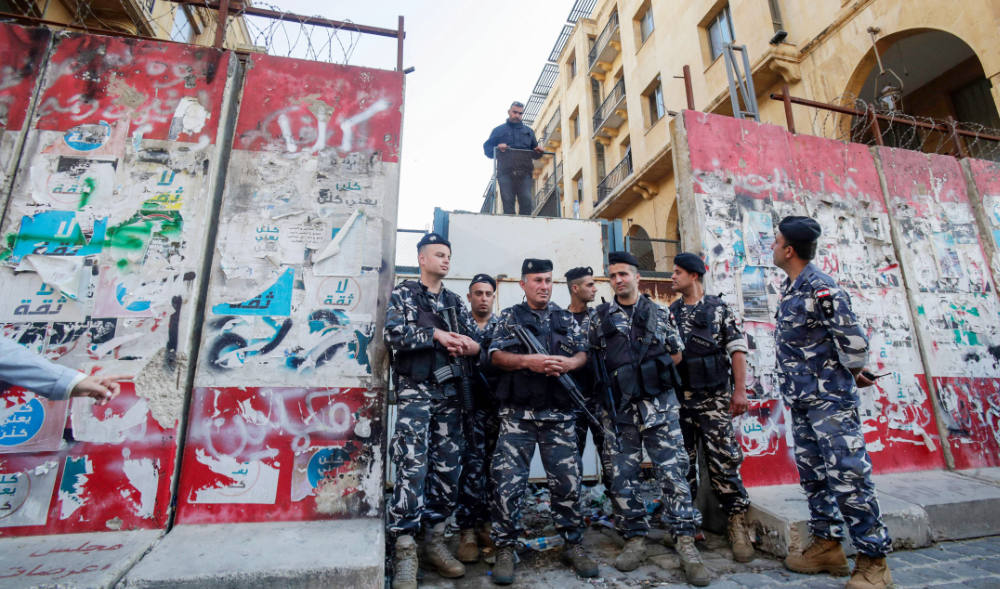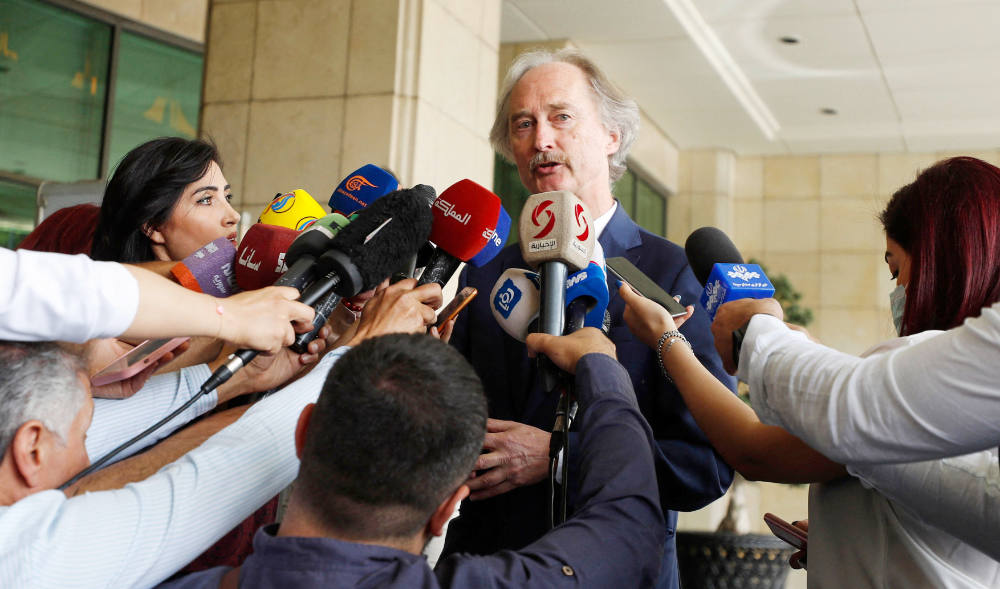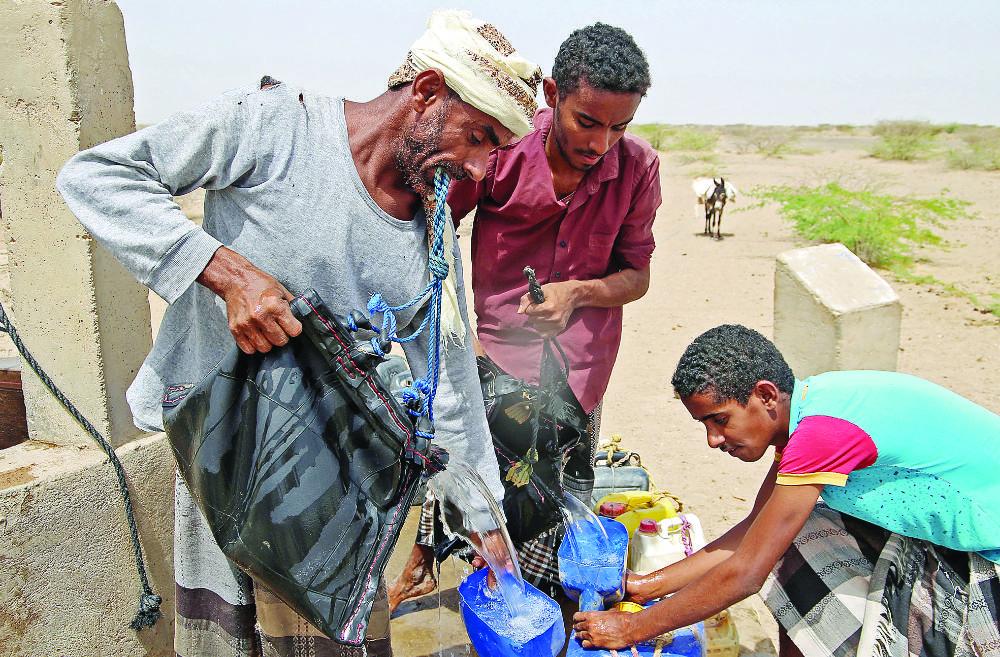More hardship as new sandstorm engulfs parts of Middle East
BAGHDAD: A sandstorm blanketed parts of the Middle East on Monday, including Iraq, Syria and Iran, sending people to hospitals and disrupting flights in some places.
It was the latest in a series of unprecedented nearly back-to-back sandstorms this year that have bewildered residents and raised alarm among experts and officials, who blame climate change and poor governmental regulations.
From Riyadh to Tehran, bright orange skies and a thick veil of grit signaled yet another stormy day Monday. Sandstorms are typical in late spring and summer, spurred by seasonal winds. But this year they have occurred nearly every week in Iraq since March.
Iraqi authorities declared the day a national holiday, urging government workers and residents to stay home in anticipation of the 10th storm to hit the country in the last two months. The Health Ministry stockpiled cannisters of oxygen at facilities in hard-hit areas, according to a statement.
The storms have sent thousands to hospitals and resulted in at least one death in Iraq and three in Syria’s east.
“Its a region-wide issue but each country has a different degree of vulnerability and weakness,” said Jaafar Jotheri, a geoarchaeologist at the University of Al-Qadisiyah in Baghdad.
In Syria, medical departments were put on alert as the sandstorm hit the eastern province of Deir Ezzor that borders Iraq, Syrian state TV said. Earlier this month, a similar storm in the region left at least three people dead and hundreds were hospitalized with breathing problems.
Dr. Bashar Shouaybi, head of the Health Ministry’s office in Deir Ezzor, told state TV that hospitals were prepared and ambulances were on standby. He said they have acquired an additional 850 oxygen tanks and medicine needed to deal with patients who have asthma.
Severe sandstorms have also blanketed parts of Iran, Kuwait and Saudi Arabia this month.
For the second time this month, Kuwait International Airport suspended all flights Monday because of the dust. Video showed largely empty streets with poor visibility.
Saudi Arabia’s meteorological association reported that visibility would drop to zero on the roads in Riyadh, the capital, this week. Officials warned drivers to go slowly. Emergency rooms in the city were flooded with 1,285 patients this month complaining they couldn’t breathe properly.
Iran last week shut down schools and government offices in the capital of Tehran over a sandstorm that swept the country. It hit hardest in the nation’s southwest desert region of Khuzestan, where over 800 people sought treatment for breathing difficulties. Dozens of flights out of western Iran were canceled or delayed.
Blame over the dust storms and heavy air pollution has mounted, with a prominent environmental expert telling local media that climate change, drought and government mismanagement of water resources are responsible for the increase in sandstorms. Iran has drained its wetlands for farming — a common practice known to produce dust in the region.
Alireza Shariat, the head of an association of Iranian water engineers, told Iran’s semiofficial ILNA news agency last month that he expected extensive dust storms to become an “annual springtime phenomenon” in a way Iran has never seen before.
In Iraq, desertification exacerbated by record-low rainfall is adding to the intensity of storms, said Jotheri, the geoarchaeologist. In a low-lying country with plenty of desert regions, the impact is almost double, he said.
“Because of 17 years of mismanagement of water and urbanization, Iraq lost more than two thirds of its green cover,” he said. “That is why Iraqis are complaining more than their neighbors about the sandstorms in their areas.”

Sandstorms pose serious risk to human health: WMOWorld’s tallest building engulfed as Mideast sandstorms hit UAE




